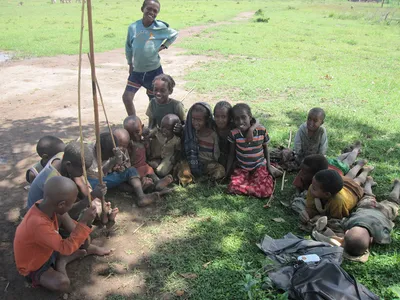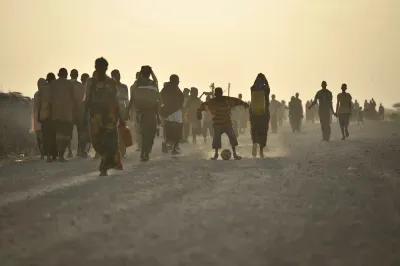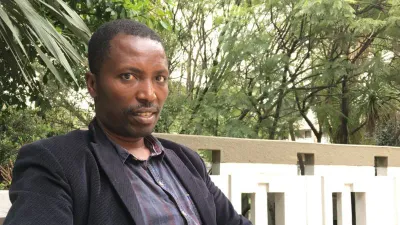Ethiopia at a Crossroads: The Fragile Reign of Prime Minister Abiy Ahmed
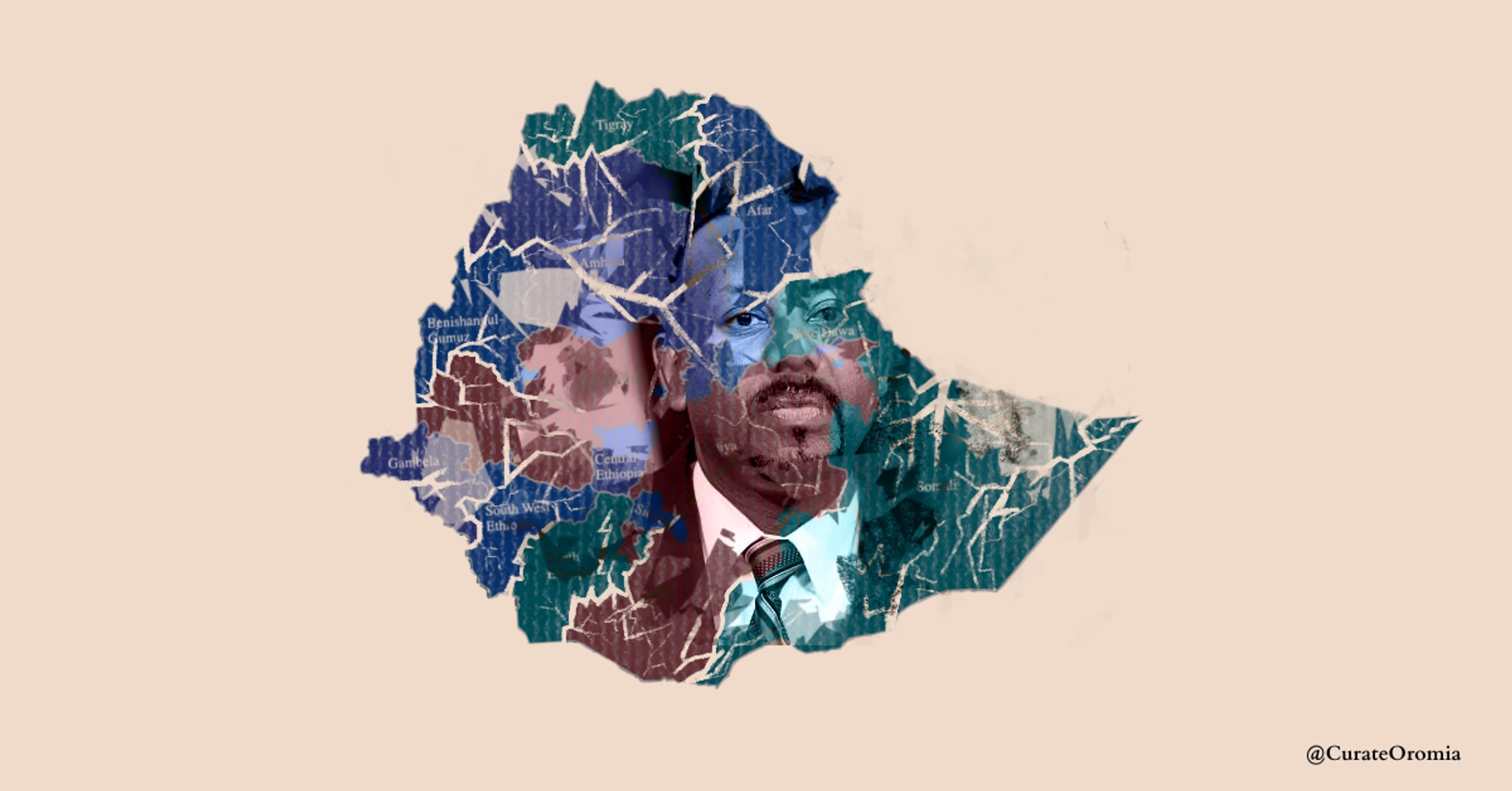
By Muhammed H. and Idris A.
1
Muhammed H. and Idris A. are Professors at Addis Abeba University.
Over six years after PM Abiy Ahmed assumed office as Ethiopia’s Prime Minister, Ethiopia today stands at a critical juncture. His promises to pursue peace, implement liberalising political and economic reform, and unify a country long marred by division and conflict won him international and domestic plaudits as a reformist leader. Since then, however, as Abiy’s tenure unfolded, cracks in his leadership emerged and progressively widened into deep fissures, pushing Ethiopia perilously close to a path reminiscent of Yugoslavia’s fragmentation or Rwanda’s tragic genocide.
The question of how and why the euphoric days of hope and optimism gave way to despair and pessimism is an academic one at the moment. The country is on the verge of disintegration as a polity. What is apparent is that the incumbent does not have the willingness and the capacity to address the multidimensional crisis that is currently besetting the country. If Prime Minister Abiy’s government collapses without a united and prepared opposition to take the reins, Ethiopia risks descending into lawlessness or, worse, more rounds of genocidal violence. The Ethiopian people must rise and save their country before it is too late. The international community should also stop supporting this failing regime, as they are only postponing the inevitable collapse and creating more harm than good.
The Ascent to Power and the Nobel Prize Moment
In many respects, Abiy is an accidental leader who was never meant to take the helm of power. His sudden rise was not born out of a robust vetting process or based on proven leadership credentials. Indeed, as a minister in the federal government, his performance was so dismal that he was dispatched back to the Oromia regional state, where he initially served as a department head. His weak leadership as an official and allegations of abuse of power should have immediately disqualified him from standing as a candidate to become a party leader and prime minister.
Yet, there was no appetite within the EPRDF to scrutinize these issues, with the prevailing political circumstances rendering the party’s appraisal system dysfunctional. Within the Oromo People’s Democratic Organization (OPDO), Lemma Megerssa, the chairman, and Workineh Gebeyehu, the deputy, were stronger candidates with more experience as executives and reputations of better character than Abiy Ahmed. Both were nevertheless pushed aside on the flimsy excuse that they were not members of the federal parliament to be appointed prime minister. This was perhaps a ploy Abiy himself concocted, and managed to convince enough party members to clear the field for his candidacy.
At the time, the overriding political objective of OPDO party leaders, in particular, was to bring down Tigrayan dominance in the EPRDF coalition and elevate an Oromo leader to the premiership. Since a significant number of the party leadership professed Pentecostal Christian faith, it is possible that they rejected the mundane criteria of qualification and relevant experience and yielded to the inscrutable divine call and selection. Abiy wielded his Pentecostal affinity to great effect to galvanize support and project a sense of moral legitimacy. The intangible but eminently powerful appeal of divine intervention catapulted to the highest office in the land an ambitious man with an insatiable urge for power and a shameless capacity for self-promotion.
The hurried decision-making process worked for the deeply flawed individual to realize his childhood dream of becoming Ethiopia’s leader. It also portended profound implications for Ethiopia’s trajectory. When Abiy was sworn in as prime minister, he was celebrated as a symbol of change, both domestically and internationally. His arrival offered hope to a nation suffocated under the draconian rule of the Tigray People’s Liberation Front (TPLF)-led EPRDF. For many, especially the pro-Ethiopianist camp, his rise was less about his leadership qualities and more about using him as a transitional figure. As Yohannes Buayalew, a senior Amhara region official, aptly put it, “The man in the front is a foam; the real power behind is us.”
Abiy’s efforts to broker peace with Eritrea earned him the Nobel Peace Prize in 2019, a moment hailed worldwide as a testament to his vision and leadership. In hindsight, the recognition now appears premature. The “peace agreement” with Eritrea, once lauded as transformative despite the dubious history of Isaias Afwerki, proved to be a ploy designed to bolster Abiy’s image rather than to deliver a lasting peace.

Critics argue that Abiy viewed the Nobel Prize as an international approval that he would leverage to consolidate personal power rather than deepen democratic reforms. Moreover, the rapprochement between Asmara and Addis heralded the Tigray war, where allied Ethiopian and Eritrean troops laid waste to swathes of the northern region.
Grandiose Projects: A Facade of Unity and Progress
Since assuming power, Abiy has behaved more like a king who prioritizes lavish projects than a prime minister focused on delivering for the public. His extravagant office renovations, palace developments, and urban beautification schemes—such as Entoto Park, Friendship Park, and Unity Park—have been marketed as transformative steps to attract investment and tourism. Yet these projects have utterly failed to address pressing national needs or create substantial jobs. The latest glittery scheme, the construction of a new palace, estimated to cost $10 billion, epitomizes this disconnect, raising serious concerns about its practicality amidst Ethiopia’s dire financial challenges.
Suspicion surrounds the funding for these projects, as Abiy has refused to disclose their sources or allow audits, though it is believed to be funded by the UAE. This lack of transparency has further eroded public trust and fuelled speculation about the misuse of national resources amidst the harsh economic downturn. Many of these high-profile projects in Addis Ababa have reportedly been awarded to companies owned by Abiy or his supporters. This practice has entrenched nepotism and favoritism, diverting public funds away from critical national priorities and exacerbating Ethiopia’s socioeconomic crises.
In recent months, Abiy’s administration has concentrated particularly on a project called ‘corridor development’ in Addis Ababa. Entire neighborhoods have been razed, including the famed Piazza district, and many thousands have been displaced as the prime minister seeks to redraw the city’s history. Residents were given inadequate notice before their homes were demolished, and many were coerced into paying for the destruction costs of their own houses without compensation. The government touts these developments as monumental achievements. In the eyes of many, however, they symbolize the prioritization of superficial urban expansion over the preservation of Ethiopia’s rich history and the well-being of its citizens.
Following Abiy’s footsteps, regional leaders have adopted similar tactics, initiating demolitions under the guise of replicating the corridor development seen in Addis Ababa. These efforts have left thousands of people across various regions in destitution, as homes were destroyed without adequate notice or compensation. Instead of addressing housing needs or improving infrastructure equitably, these actions have exacerbated the suffering of already vulnerable communities, further fueling discontent and distrust in leadership at all levels of government.
Suppression of Dissent, Institutional Instability, and Entrenched Corruption
Within the Prosperity Party, Abiy Ahmed abolished the mechanisms like gimgema (criticism and self-criticism), a hallmark of accountability during the EPRDF era. Meetings under his leadership have devolved into monologues, where Abiy speaks, and others listen passively, resembling a pastor’s sermon with no questions allowed. In turn, these gatherings have become platforms for Abiy to insult and shame leaders who dare to ask questions, silencing dissent. This toxic environment has left party members intimidated and compliant, ensuring that any potential challengers are swiftly removed.
Frequent reshuffling of ministers and officials—over 90 times within six years—has entrenched Abiy’s control, fostering a culture of dependency and preventing individuals from challenging his authority. Key ministers have been subjected to multiple turnovers, undermining institutional continuity and effectiveness. Any individual perceived to even begin threatening Abiy’s position is quickly removed.
Meanwhile, rampant corruption and a skyrocketing cost of living have eroded public trust in governance. Civil servants at every level openly demanded bribes, turning essential public services into transactions available only to those who could pay. Much of the revenue accrues into officials’ pockets rather than the government coffers.
An entrenched culture of self-enrichment extends to the highest levels of government. Ministers and high-ranking officials, emboldened by an environment of impunity, indulge in extravagant lifestyles. Every ministry now includes private amenities for its head, including a bedroom, dining area, gym, and wardrobe. Abiy has further reinforced this culture through his own actions and remarks. On one occasion, he reportedly advised a minister to divorce his wife if she failed to beautify herself; on another, he berated a minister for not keeping his wardrobe full after noticing he wore the same suit frequently. Displaying opulence has now become a mark of professionalism for Prosperity Party operatives and civil servants.
While the Ethiopian people struggle with the ever-rising cost of living and dwindling access to essential services, government officials appear to be living their dreams. Luxurious lifestyles, personal enrichment, and unchecked indulgence have become the norm among those in power, exacerbating the resentment of the populace.
Economic Mismanagement: Ethiopia’s Deepening Crisis
Under Prime Minister Abiy, Ethiopia’s economy has plunged into a crisis marked by mounting debt, rampant inflation, skyrocketing unemployment, and gross fiscal mismanagement. External debt ballooned to over $60 billion by 2023, triggering repeated downgrades by international credit rating agencies. In December 2023, Fitch Ratings downgraded Ethiopia to “Restricted Default,” indicating missed debt payments, while Moody’s lowered its rating to Caa3, signifying a high risk of default. Inflation has surged and remained high, eroding household purchasing power, with over 30% of the population unable to meet their basic needs.
The government’s decision to float the Ethiopian birr in July 2024 as part of major macroeconomic reforms and its subsequent devaluation has exacerbated the economic turmoil. When Abiy assumed office, the official exchange rate stood at 27 birr per dollar; today, it has soared to over 120 birr per dollar. This currency collapse has driven up the cost of imports, including vital goods, rendering them unaffordable for most Ethiopians. Rising fuel prices have made transportation costs prohibitive, further burdening citizens. Yet, in a tone-deaf response to this crisis, the minister of transport and logistics suggested horse carriages as a solution, deriding the suffering of the country and further compounding the disenfranchisement.
The economic collapse has triggered widespread hunger in urban areas. It has become disturbingly common to see well-dressed individuals begging for food—an alarming sign of how deeply economic despair has permeated society. Civil servants, unable to afford basic necessities, spend their lunch hours in churches and mosques, seeking divine solace to cope with their unmet earthly sustenance. Cases of people fainting in the streets due to hunger are now frequent, and suicide rates have surged—an unsettling development in a country where such acts were historically rare.
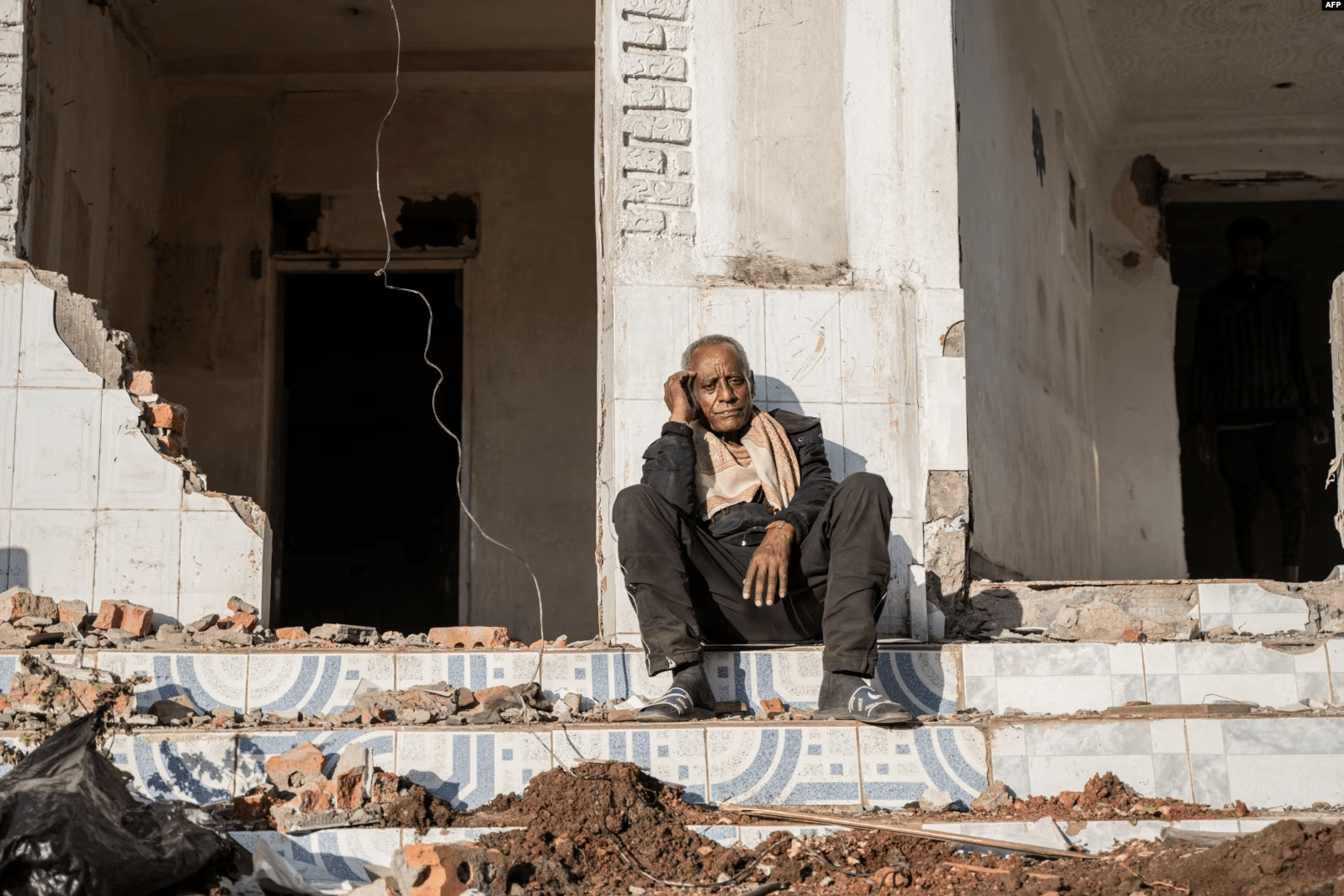
In rural areas, especially in conflict-affected regions, famine has progressed from a looming threat to a grim reality. Most rural areas are unable to work their land due to ongoing conflicts, depriving communities of their primary source of livelihood. To make matters worse, funds allocated for crucial agricultural inputs, such as fertilizer, have been diverted into vanity projects and financing war efforts. This has left farmers unable to cultivate their land, further exacerbating food insecurity and pushing millions deeper into poverty.
Ethiopia’s economic mismanagement has created a dire employment crisis. Urban job opportunities are disappearing, with unemployment skyrocketing as the displaced travel to towns and cities. Businesses have shuttered under the weight of exorbitant taxes and mandatory government contributions, leaving countless individuals without stable livelihoods. Most notable of all is how the destructive conflicts in Tigray, Oromia, and Amhara have wrought immense destruction to the economic infrastructure of the regions. Factories have closed, foreign direct investment (FDI) has plummeted, and the loss of African Growth and Opportunity Act (AGOA) privileges has compounded the economic hardship.
Institutional Breakdown
In this bleak economic landscape, the only significant employment opening remaining lies in joining the military. Yet even military service is widely avoided due to the perception that the ongoing vicious conflicts primarily serve to prolong Prime Minister Abiy’s administration. Many of those forced into conscription lack the will to fight, with desertion rates high as soldiers defect whenever opportunities arise. This has eroded morale within its ranks, further weakening the government’s ability to defeat insurgencies.
Meanwhile, the government has also shown little commitment to addressing the severe educational crisis. Over the past two years, only 3% of students have passed their university entrance exams, effectively blocking access to higher education for millions of young Ethiopians. And for those who managed to enter universities, the situation is equally dire. Students have been demonstrating across campuses, protesting inadequate food provisions and widespread hunger. Universities, which should be places of learning, have become sites of frustration and despair as the government fails to meet even the most basic needs of its students. Rather than investing in education, the government has repurposed schools into quasi-prisons aimed at silencing dissent, further undermining the education system’s role as a pathway to opportunities. This deliberate neglect reflects a broader trend of authoritarian control, leaving Ethiopia’s youth with limited options and growing resentment.
The government’s inability to manage its fiscal responsibilities has further eroded public trust. Teachers in Addis Ababa are subjected to the indignity of receiving meals at schools because their salaries are insufficient to cover basic living expenses. This systemic failure underscores the collapse of public services and the dehumanizing treatment of Ethiopia’s civil servants.
Fueling Ethnic Conflicts
One of the most disturbing elements of his regime has been how Prime Minister Abiy Ahmed has mastered the art of manipulating Ethiopia’s ethnic divisions to consolidate his hold on power. After turning much of the country on Tigrayans, justifying the genocidal violence against the northern population as permissible due to the supposed crimes of their leaders, Abiy has turned elsewhere. He has since sown discord between Oromia and all its adjacent regions, portraying the Oromo people as expansionist territory grabbers. This narrative has fostered hostility between Oromia and other regions while simultaneously creating a dependency on Abiy among the Oromo population. He has presented himself as their sole protector, warning that without him at the helm of power, the Oromo would suffer retribution at the hands of others. This calculated tactic has ensured their continued support, rooted in fear rather than trust.
Abiy’s indifference to inter-regional conflicts further reveals the extent of his divide-and-rule approach. Rather than resolving disputes, he has actively exacerbated tensions, at times supporting one side against the other. A glaring example is the prolonged conflict between the Afar and Somali regions, where his government’s bias has fueled resentment and protracted violence. These conflicts serve Abiy’s interests by keeping regions mired in disputes, preventing them from uniting to address broader and systemic issues affecting the entire country, such as poverty, lack of development, and inadequate service provision. It further forces warring communities to turn towards the Ethiopian army for protection.
For Abiy, the stability of Addis Ababa and the preservation of his power remain the primary objectives. He appears to be unconcerned if the rest of the country descends into chaos as long as it prevents the rise of a unified opposition to challenge his authority. By ensuring that every region is bogged down in conflict, Abiy has attempted to stifle any collective voice that might call attention to shared grievances or demand accountability from his government. In this environment of fabricated division and unceasing violence, Abiy’s power remains largely unchallenged at the expense of Ethiopia’s stability and future. Some minor coalitions have come together to criticize the government but have made little serious headway due to their near-total dominance.
Divide and Rule: Orchestrating Religious Divisions
Since coming to power, Prime Minister Abiy Ahmed has strategically weakened Ethiopia’s religious institutions, reducing their influence and eroding public trust. By drawing these institutions into his orbit and fostering divides within the Ethiopian Orthodox Tewahedo Church (EOTC), he has transformed them into instruments of his regime, ensuring they no longer serve as independent moral authorities.
Abiy’s first move was to target reputable leaders within religious institutions, corrupting them through the promise of government positions and lucrative funding sources. Once ensnared, these leaders became unable—or unwilling—to stand against his policies. The EOTC and Islamic houses of worship that once held significant sway over public opinion are now seen as complicit in the government’s actions, including blessing wars and perpetuating corruption. This has caused them to lose respect and credibility in the eyes of the Ethiopian people, while the EOTC’s leadership support for the war on Tigray led to the splinter synod being formed.
Regarding the Protestant community, Abiy pursued a unique approach. As a Pentecostal Christian, he presented himself as a messiah-like figure, divinely sent to lead Ethiopia into greatness and ‘prosperity.’ Protestant groups have embraced this narrative as an answer to their prayer and support for Abiy as their religious duty. The Protestant community became one of his most loyal bases, backing him unconditionally regardless of his policies or actions. In 2019, Abiy consolidated this loyalty by spearheading efforts to unify Protestant denominations under a single platform, effectively aligning their voices with his Prosperity Party. Key Protestant leaders were elevated to influential government positions, ensuring their continued allegiance.
Ethiopia’s Devastating Conflicts: A Humanitarian and Developmental Challenge
The ongoing conflicts in the Amhara and Oromia regions are exacting a catastrophic toll on Ethiopia’s stability, development, and humanitarian well-being. These wars have rendered vast tracts of fertile land uncultivable, crippling food production and exacerbating an already dire food insecurity crisis. Exports have plummeted, and land transportation has become increasingly perilous due to rampant kidnappings and attacks, further isolating communities and disrupting trade.
Armed groups, particularly the Fano insurgency in the Amhara region and the Oromo Liberation Army (OLA) in Oromia, are becoming more battle-hardened and attracting a growing number of recruits. Despite internal divisions, these groups have demonstrated an increasing ability to challenge the government directly– despite several large-scale offensives against the insurgents in recent months. This is in large part because the loss of experienced middle-rank officers during the Tigray war has eviscerated the Ethiopian National Defense Forces (ENDF), causing it to increasingly rely on a stream of conscripts who lack the morale and the will to fight effectively. In turn, these poorly trained soldiers have turned to human rights violations, isolating them from the communities they are nominally supposed to defend.
Meanwhile, the rise of criminal groups and militias has exacerbated this escalating power shift, some allegedly funded by the government. These groups engage in kidnappings, targeted killings, and the deliberate incitement of horizontal conflict between Amhara and Oromo communities. These actions appear calculated to distract from the country’s shared grievances emanating from poverty, underdevelopment, and the state’s failure to provide basic services.
The broader impact of these conflicts is staggering. A study by Addis Ababa University reports over 5,000 conflicts in the past five years, resulting in approximately 1.5 million deaths—surpassing the casualties of Ethiopia’s historical wars combined. Infrastructure damage is equally devastating. In Tigray alone, the war has caused over $80 billion in property damage, while the destruction in Amhara and Oromia remains vast and unquantified. Hospitals, schools, and other essential infrastructure in these regions are in shambles, further exacerbating the humanitarian crisis.
The health system in conflict-affected areas is barely functional. In Tigray, only 3% of health facilities remain operational, while in Amhara, over half have been damaged. The education sector is similarly crippled, with schools repurposed as military bases in Amhara, displacing teachers and preventing millions of children from completing their education. UNICEF estimates that more than 9 million children will be out of school by the end of 2024, jeopardizing the future of an entire generation.
Meanwhile, the diversion of critical resources to finance these wars has devastated agricultural production, particularly in historically fertile regions like Wallagga and Gojam. More than 30 million Ethiopians face food insecurity, with famine conditions reported in Amhara and Tigray. Displacement is widespread, and the collapse of essential services has left millions in despair.
Prime Minister Abiy Ahmed’s leadership has done little to mitigate these immense crises. Instead, his government appears to exploit the chaos to maintain its grip on power in the capital, even as its presence shrinks in swathes of the country.
Tigray: A Fragile Pause in the War
The Pretoria Agreement, intended to bring peace to Tigray, has inadvertently allowed Prime Minister Abiy to achieve through diplomacy what he could not accomplish militarily. Capitalizing on internal divisions within the TPLF, Abiy has strategically weakened Tigray’s unity, ensuring that the region remains fragmented and politically marginalized.
Despite the cessation of hostilities in November 2022, Tigray continues to suffer from a lack of meaningful reconstruction efforts, political reconciliation, and federal representation. The region’s exclusion from ministerial portfolios and the ongoing occupation of fertile lands by Eritrean and Amhara forces exacerbate the sense of marginalization. Key elements of the agreement, such as the Disarmament, Demobilization, and Reintegration (DDR) and resettlement programs, are progressing poorly, further deepening local grievances. Tigray remains stuck in a terrible ‘no war, no peace’ situation.
The Tigrayan populace, having endured immense losses during the war, has grown disillusioned with the unfulfilled promises of the Pretoria Agreement. The absence of tangible progress in addressing critical issues—from war crimes to economic rebuilding—has left the region on the brink of renewed conflict. The destabilising rift within the TPLF leadership, happily stoked by Addis, has stalled both Tigray’s governance and reconstruction. The peace is fragile, and the possibility that the Tigray Defense Forces supplants the Interim Administration could trigger another conflict that the region can ill afford.
Broader Implications
Ethiopia’s instability has significant implications for the Horn of Africa, a region already marred by conflict and fragile governance. As Africa’s second-most populous country, Ethiopia’s descent into deeper crises threatens to destabilize neighboring Kenya, Somalia, Sudan, and Eritrea. The ongoing conflicts and economic hardships have driven large-scale migration, with millions of Ethiopians seeking refuge in neighboring countries. This mass displacement strains the already limited resources of host nations and heightens regional tensions.
Moreover, Ethiopia’s internal turmoil undermines its ability to act as a stabilizing force in the region. Once a critical player in regional organizations like the Intergovernmental Authority on Development (IGAD) and an upholder of African multilateral norms, Ethiopia’s focus on domestic crises has left a leadership vacuum, complicating efforts to address shared challenges like terrorism, cross-border conflicts, and food insecurity. The absence of a coherent Ethiopian foreign policy exacerbates vulnerabilities across the Horn, making the region more susceptible to external manipulation and escalating violence. In particular, the return of Isaias Afwerki as a regional kingmaker has only been made possible by the concurrent waning of Ethiopian influence.

The situation also threatens key global interests, including international trade routes in the Red Sea and Gulf of Aden. Prolonged instability in Ethiopia could lead to heightened piracy risks and disrupt vital maritime corridors, affecting global supply chains. Addressing Ethiopia’s crisis, therefore, is not just a national concern but a regional and international imperative.
A Call for Unity and Reform
Ethiopia’s salvation lies in a unified and strategic opposition that prioritizes national stability over personal agendas. To achieve this, opposition leaders must:
- Unite Across Divisions: Fragmentation among opposition groups has been a significant advantage for Abiy. A cohesive opposition bloc that crosses regions and ethnic groups can mobilize public support and provide a viable alternative.
- Expose Regime Failures: Amplify public discontent with Abiy’s mismanagement, highlighting the disparity between propaganda and reality.
- Engage International Partners: Convince global players that supporting Abiy’s regime perpetuates instability, endangering regional security and investments. Engagement is not sustainable in the long term.
- Promote Interethnic and Interfaith Harmony: Actively work to bridge ethnic and religious divides, fostering dialogue and understanding to prevent conflicts that have previously been exploited for political gain.
Conclusion
Prime Minister Abiy’s leadership has plunged Ethiopia into an unprecedented crisis, with economic collapse, ethnic fragmentation, and humanitarian disasters destabilizing both the country and the wider Horn of Africa. While neighboring countries like Kenya, Somalia, and Sudan are not yet grappling with mass migration, a complete collapse of the Ethiopian state would overwhelm these nations, intensifying significant insecurity in the latter two as well as economic strain. A weaker Ethiopia has already exacerbated regional vulnerabilities, fostering an environment ripe for terrorism, cross-border conflicts, and further instability.
The international community’s continued support for Abiy, despite the innumerable failures of his government, has only prolonged these challenges. Despite this backing, Abiy’s highly militarised control has become largely confined to the capital, with vast regions like Amhara and Oromia spiraling into chaos. His administration’s failure to govern effectively has left Ethiopia teetering on the brink of state collapse. It is time for the international community to say, “Enough is enough.” The world must hold Abiy accountable for the atrocities committed during the Tigray war and the ongoing crimes in the Amhara and Oromia regions. Justice for these crimes is not only a moral imperative but also a necessary step toward rebuilding trust and stability in Ethiopia. A failure to do so may well lead to the total breakdown of Ethiopia as a coherent state.
Ethiopia’s recovery requires urgent and inclusive action, and a unified opposition and governance reforms must emerge to rebuild trust and stability. The international community must prioritize Ethiopia’s crisis and wake up to the reality of the day by supporting dialogue, humanitarian aid, and regional security initiatives while ensuring accountability for those responsible for the nation’s suffering. Ignoring Ethiopia’s fragility risks destabilizing the Horn of Africa and amplifying global challenges like migration and terrorism. With Ethiopia standing at a perilous crossroads, the time for decisive, collective action is now.
Footnotes
We need your support
We trust you found something of value in this article. If so, we kindly ask you to consider helping Curate Oromia continue its work.
If you believe in the importance of independent voices and honest reporting, we invite you to support our efforts through our GoFundMe campaign.
Every contribution, however small, goes directly to our writers and the expansion of our reach.
Thank you for your support.

